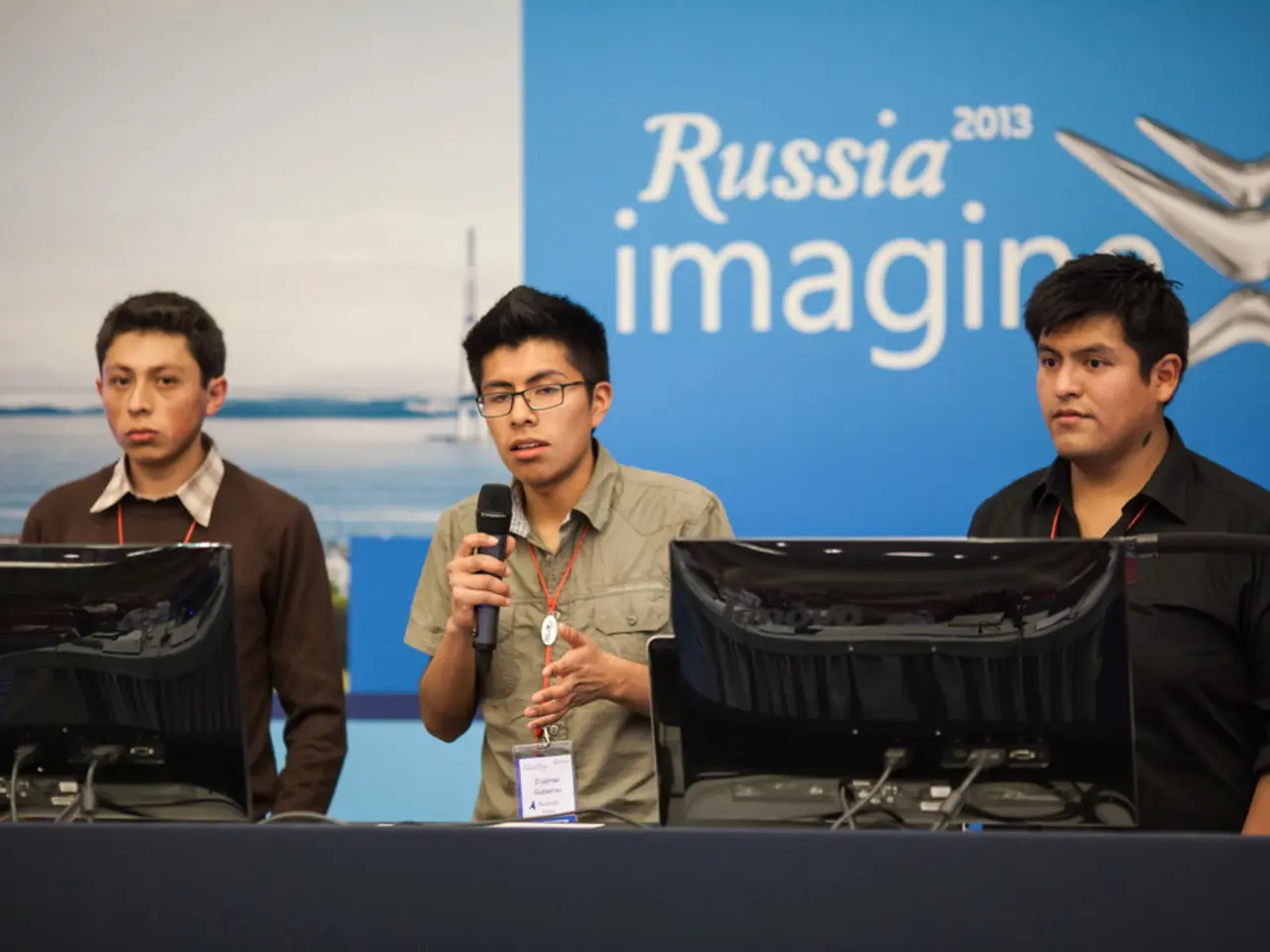Country adopts digital approach for local government affairs: residents to partake in virtual gatherings online
In a significant move towards modernizing local governance, the German cabinet has submitted a bill to amend municipal and other regulations to the state parliament. This bill, if passed, could potentially expand digital meeting options for local councils and county councils across Germany, according to Thomas Strobl, the Interior Minister, who stated that this move paves the way for municipal bodies into the digital age.
The bill provides a framework for municipal self-government in digital meetings, allowing cities, municipalities, and counties to decide for themselves whether to use digital options for council meetings. If a municipality does not make a decision, film and sound recordings will only be permitted if all members of the municipal committee present agree.
Municipalities also have the autonomy to adapt their main charter to facilitate digital council meetings. This autonomy extends to the reimbursement of people with disabilities for support services like personal assistance, transportation services, or sign language interpreters for participating in committee meetings.
The bill does not specify any conditions or restrictions for digital meetings beyond the autonomy granted to municipalities. However, it does not address the specifics of film and sound recordings in digital meetings, leaving room for future regulations or guidelines.
During the Corona pandemic, digital meetings were first made possible, and they have since been used in exceptional cases like natural disasters or infection protection. With this bill, digital meetings could become a regular part of local governance, making participation more accessible for people with disabilities and those who may find it difficult to attend in-person meetings.
The bill also allows different committees, such as city councils, county councils, committees, or local councils, to be connected for digital meetings. This could facilitate collaboration and decision-making across various levels of local government.
Currently, there are no publicly available specific regulations or detailed documentation on the digitalization of local councils and county councils meetings in Stuttgart as of mid-2025. Stuttgart’s recent digitalization efforts mainly emphasize areas like education and urban development rather than local government meeting procedures.
However, the future possibilities for digitalization could align with broader trends in digital business models and entrepreneurship, as indicated by related academic conferences on digital transformation in the Stuttgart region scheduled for late 2025. Broader digital transformation events in Germany, such as the upcoming Global Digital Transformation conference in Berlin, reflect increasing interest in digital governance but are not specific to Stuttgart local councils.
In summary, while Stuttgart is actively engaged in digital innovation, no clear regulations or established practices for fully digitalizing local council meetings are documented yet. The future possibilities may evolve in line with regional digital business research and wider digital transformation trends observed in Germany. For the most recent and detailed official regulations, contacting Stuttgart’s city administration or local government offices directly would be advisable.
- The bill, if passed, could potentially allow for technology integration in digital council meetings, enabling city councils, county councils, committees, or local councils to use management systems to streamline processes and decision-making.
- With digital meetings becoming a regular part of local governance, management of these meetings might require advanced technology, such as video conferencing systems and digital platforms for agenda sharing and voting, to ensure smooth and efficient operations.




